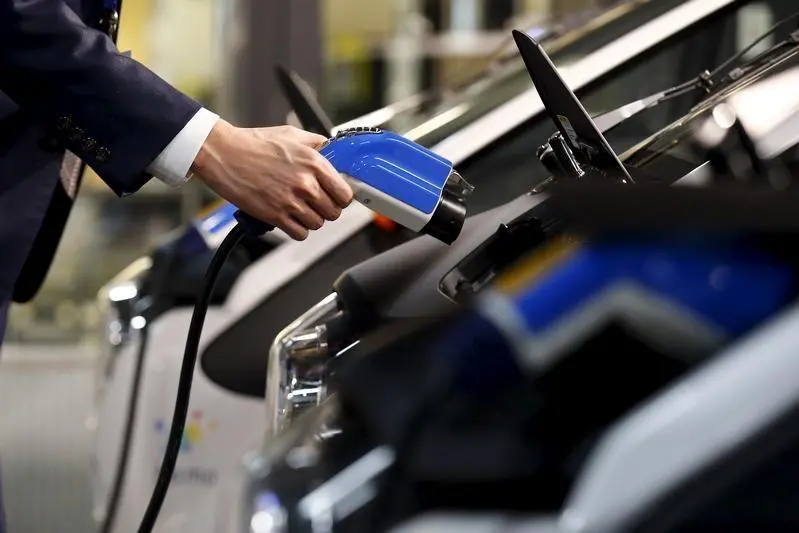PHOTO
Monday, May 25, 2015
Dubai: Electric vehicles (EV) have begun making inroads in the UAE but the country still lacks federal regulations covering the industry.
Hybrid vehicles, electric-powered buses as well as electric cars have been plying on UAE roads, particularly in Dubai, for the last few years but, according to industry leaders, standards and specifications concerning the operation and maintenance of EVs are still missing.
Dubai has spearheaded the drive to promote electric vehicles with the launch of EV charging stations as well as putting in place the mechanism and apparatus to inspect and register the vehicles, but the general ecosystem that is required for electric vehicles to compete with conventional vehicles has to be established across the country, the first UAE Electric Vehicles Conference heard on Wednesday.
“UAE is the only country in the region that has some electric vehicle presence and the country with the vision of its leadership and drive for sustainable development can lead the region in low-carbon transportation. Dubai has taken steps in this regard by beginning to set up electric vehicle charging stations but we would like to see the initiative taken up at the federal level, where there are no regulations and standards to govern electric vehicles,” said Michel Ayat, CEO of Arabian Automobiles that distributes Renault electric cars in the UAE, speaking at the Electric Vehicle Conference.
Ayat called for government incentives such as exemption of import duty as well as other benefits for the owners of EVs as well as discounts on registration fees, free parking, Salik exemption as well as discount on electricity consumption.
“We are fully committed and aligned to the Dubai Smart City initiative for promoting sustainable transportation and transforming Dubai into one of the smartest cities in the world. We recognise the fact that electric vehicles represent the next phase of automotive technology and, with exciting electric vehicles present in our line-up, we aim to support Dubai in achieving the highest standards of energy efficiency,” Ayat said.
He added that governments in European countries offer incentives for owners of electric vehicles and the UAE should follow suit by introducing the regulations and promoting the use of these vehicles.
Speaking at the conference, Saeed Mohammad Al Tayer, Managing Director and CEO of Dubai Electricity and Water Authority (Dewa), reaffirmed Dubai’s commitment to sustainable development and highlighted the initiative undertaken in this regard.
“The introduction of electric vehicles to Dewa’s fleet supports these strategies and complements one of the three initiatives that Dewa is undertaking to achieve the Smart Dubai initiative by the roll-out of 100 electric vehicle charging stations by the end of this year,” Al Tayer said.
The first set of charging stations has already been set up at Dewa premises as well as at Dubai Silicon Oasis, while the rest will be set up at various locations by the end of this year.
According to Dubai’s Roads and Transport Authority (RTA), Dubai already has around 200 electric vehicles registered, including around 50 light passenger vehicles, apart from electric-powered construction and commercial vehicles as well as buses.
However, a senior RTA official acknowledged that there are no federal regulations regarding these vehicles, which need to be introduced by the Emirates Standardisation and Metrology Authority (Esma).
“There is no Esma or GSO regulations and specifications for electric vehicles in the UAE. However, the EVs are legally being imported into the UAE and the vehicles generally comply with GCC specifications for any regular vehicle,” said Ahmad Hashem Behroozian, CEO of RTA’s Licensing Agency.
He added that RTA’s Licensing Agency registers all vehicles that are legally imported, including electric vehicles.
“We have the means and tools to inspect the electric vehicles just as we do regular vehicles, so we inspect and register electric vehicles and so far we have around 200 electric vehicles registered in Dubai, including around 50 light passenger vehicles. Other electric vehicles registered in Dubai include construction vehicles and commercial vehicles,” he added.
Dwelling on the technicalities of the EVs, he stated: “Electric vehicles are powered by lithium batteries and, federally, there are no regulations and specifications for operating and maintaining lithium batteries in the UAE. As for other aspects of the electric vehicles, like the brakes, the transmission, the suspension, etc, they are more or less the same as any regular vehicle so we have no issues in dealing with these vehicles.”
RTA also recently began a trial run of a fully electric-powered bus.
Esma was not immediately available for comments on the subject.
By Shafaat Shahbandari Staff Reporter
Gulf News 2015. All rights reserved.





















